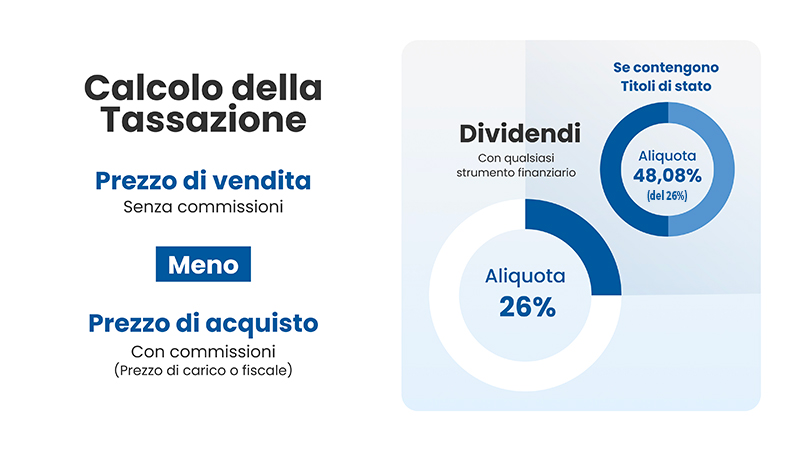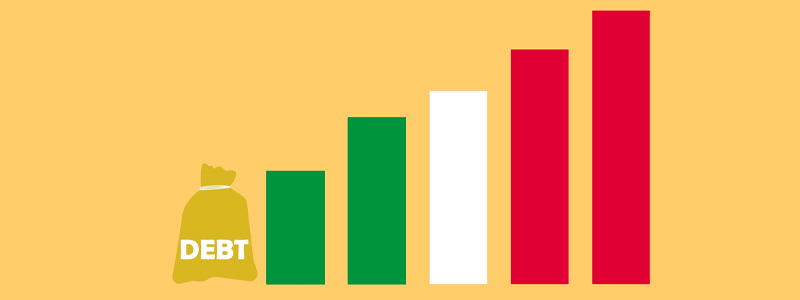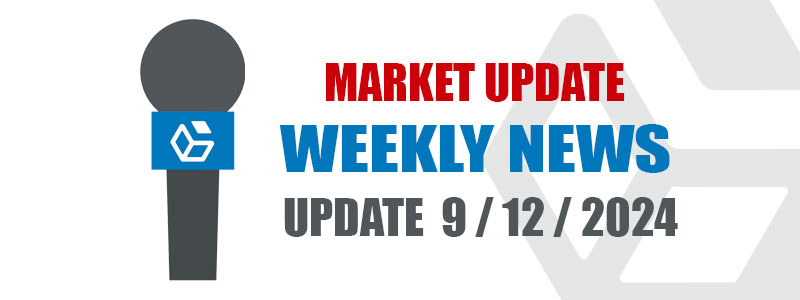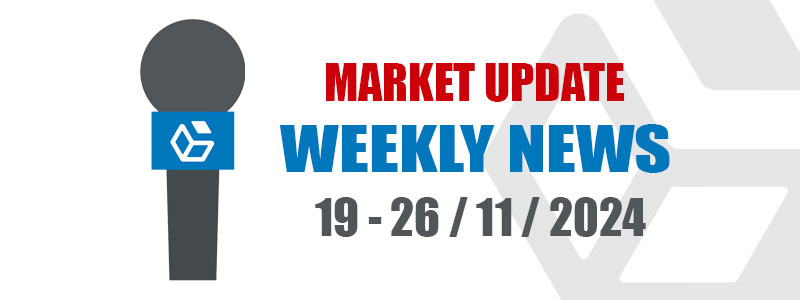
Continuous changes in the monetary policies of central banks, such as the European Central Bank (ECB) and the Federal Reserve (Fed), have led to significant fluctuations in interest rates, with a major impact on various sectors, including real estate. In recent months, the economic landscape has seen a significant shift, with interest rates beginning to show signs of decreasing after a period of steady increase. This turnaround has caught the attention of many, especially those who are considering buying a home or renegotiating their mortgages.
1. The current situation of interest rates
Interest rates are one of the main tools used by central banks to control inflation and support the economy.
In recent years, due to global economic uncertainties and pandemic crises, major central banks have adopted expansionary monetary policies, driving rates to historic lows.
This trend, however, reversed with the rise of post-pandemic inflation, prompting central banks to raise interest rates to counter price growth. After this last period of restrictive monetary policies adopted by central banks to counter inflation, we are finally seeing a gradual easing.
The European Central Bank (ECB) and the Federal Reserve in the United States have signaled the possibility of rate cuts in the near future, directly affecting the interest rates offered by commercial banks.
This change of course is mainly due to two factors:
- The slowdown in inflation in many advanced economies.
- The need to sustain economic growth amid global uncertainty.
2. The impact on mortgages
Lower interest rates have a direct effect on the mortgage market, affecting both new and existing loans: FOR NEW BORROWERS:
- Greater affordability: lower rates mean lower monthly installments, making buying a home more affordable for many.
- Increased purchasing power: with the same monthly budget, potential buyers could afford higher value properties.
- Stimulus to the housing market: increased accessibility could lead to increased demand for real estate.
FOR THOSE WHO ALREADY HAVE A MORTGAGE:
- Renegotiation opportunity: those who took out a fixed-rate mortgage during periods of higher rates might consider renegotiating to take advantage of the new terms.
- Rate reduction for variable-rate mortgages: borrowers with variable rates could see an automatic decrease in their monthly payments.
If you are considering buying a home or renegotiating your existing mortgage, here are some important points to consider:
- Market timing: even if rates are falling, trying to predict the “perfect time” to get the lowest rate is risky.
Market conditions can change rapidly. - Fixed vs. variable rate: in a declining rate environment, an adjustable-rate mortgage might seem attractive.
However, carefully evaluate your risk tolerance and long-term financial outlook. - Renegotiation costs: if you are considering renegotiating an existing mortgage, be sure to calculate all associated costs (notary fees, any penalties, etc.) to make sure that the savings actually exceed the expenses.
- Your financial situation: regardless of market rates, make sure the mortgage is sustainable for you in the long run, considering your income, expenses and savings.
- Professional advice: given the complexity of financial decisions, it may be useful to consult an independent financial advisor to assess the best strategy for your specific situation.
3. Fixed-rate or variable-rate mortgage?
Mortgages as is well known are one of the main financing tools for buying a home. When interest rates fall, financing terms generally become more favorable, leading to a reduction in borrowers’ borrowing costs. But how do you choose between a fixed-rate mortgage and an adjustable-rate mortgage in a declining rate environment? Fixed-rate mortgage: with a fixed-rate mortgage, the interest rate remains the same throughout the term of the loan.
This type of mortgage is particularly suitable when rates are at historic lows, as it allows you to lock in an affordable rate for the duration of the loan, thus protecting yourself from any future increases.
But beware, if rates are expected to fall, a fixed-rate mortgage may be less advantageous than a variable-rate mortgage, as it will not allow you to benefit from any subsequent reductions! Variable-rate mortgage: with a variable-rate mortgage, the interest rate is updated periodically (usually every 3, 6 or 12 months) based on the trend of a benchmark index, such as Euribor. In a declining rate environment, this type of mortgage can be more convenient because it allows you to benefit immediately from rate reductions.
Despite this, however, it presents a greater level of uncertainty, since repayment terms could worsen if rates go back up, and thus one would be at a disadvantage until rates hint at falling again.
4. Renegotiation and subrogation: the opportunities !
In a context of falling interest rates, even those who have already taken out a mortgage can take advantage of the current situation through renegotiation or subrogation operations. Let’s look in detail at what these two options consist of: Renegotiation: renegotiation involves reviewing the terms of your mortgage with your bank.
Usually, this involves changing the interest rate (going from fixed to variable or vice versa) or the term of the loan, with the aim of reducing the monthly installment or the total amount of interest to be paid.
In a context of falling rates, renegotiating your mortgage can be an opportunity to obtain more favorable terms without having to change lending institutions. Subrogation: subrogation, on the other hand, involves transferring the mortgage to another bank, keeping the remaining amount but renegotiating the terms (rate, term, etc.).
Unlike renegotiation, subrogation involves the involvement of a new lending institution, which may offer better terms than the current one.
Thanks to the 2007 Bersani law, subrogation is a no-cost transaction for the borrower, making it a particularly attractive option.
5. Future prospects for the mortgage market
Although it is difficult to predict future interest rate trends with certainty, the possibility of a further decline in rates presents an attractive opportunity for anyone considering the purchase of a property or wishing to renegotiate their mortgage.
It is important to act prudently, taking into account one’s financial needs and, as in all types of investments, the level of risk one is willing to tolerate. Economic forecasts suggest that interest rates may remain relatively low for the foreseeable future, but it is critically important to remember that the financial market is subject to multiple factors and can change rapidly.
Geopolitical events, economic crises, or changes in monetary policies can significantly affect interest rates.
A prolonged period of low rates could lead to:
- An increase in property prices, potentially offsetting some of the benefit of lower rates for new buyers.
- Greater competition in the housing market, with more buyers able to afford mortgages.
- Possible regulatory measures to prevent overheating in the housing market.
Therefore, those planning to buy homes may be faced with a dilemma: take advantage of falling rates now or wait for further declines, but risk an increase in real estate prices?






